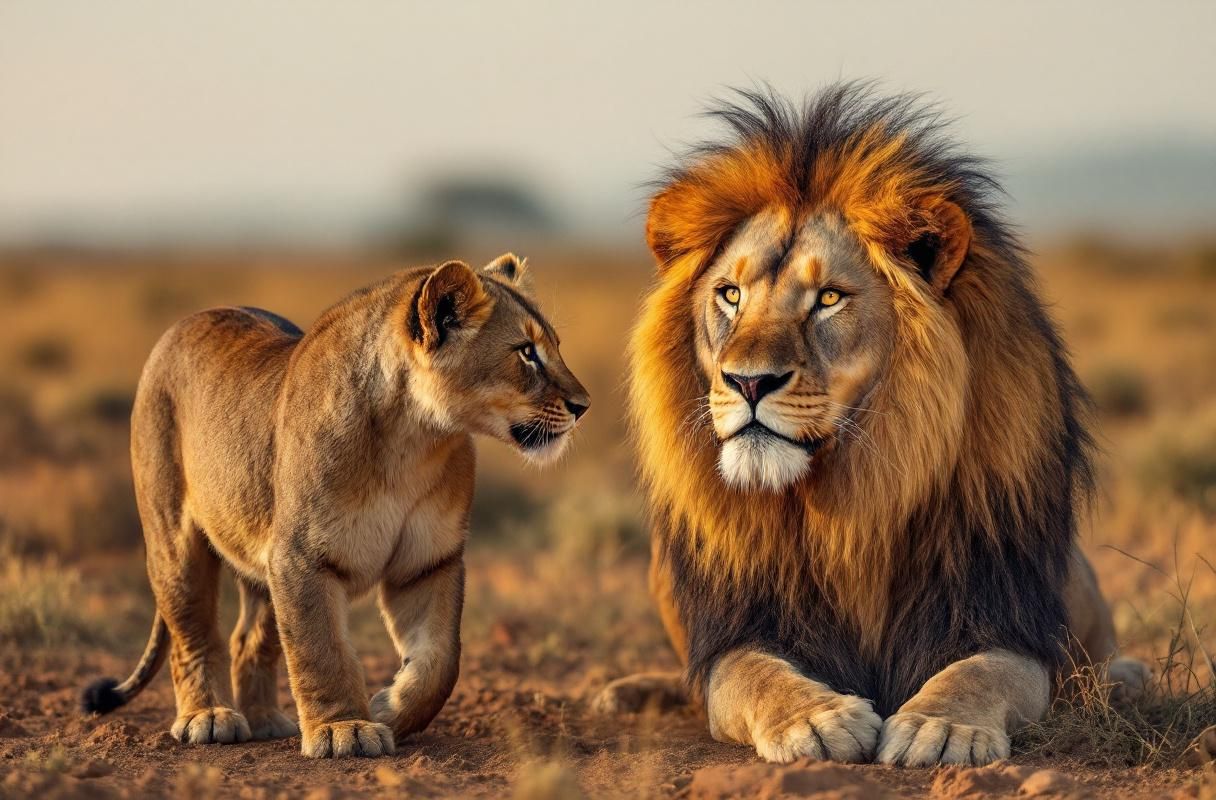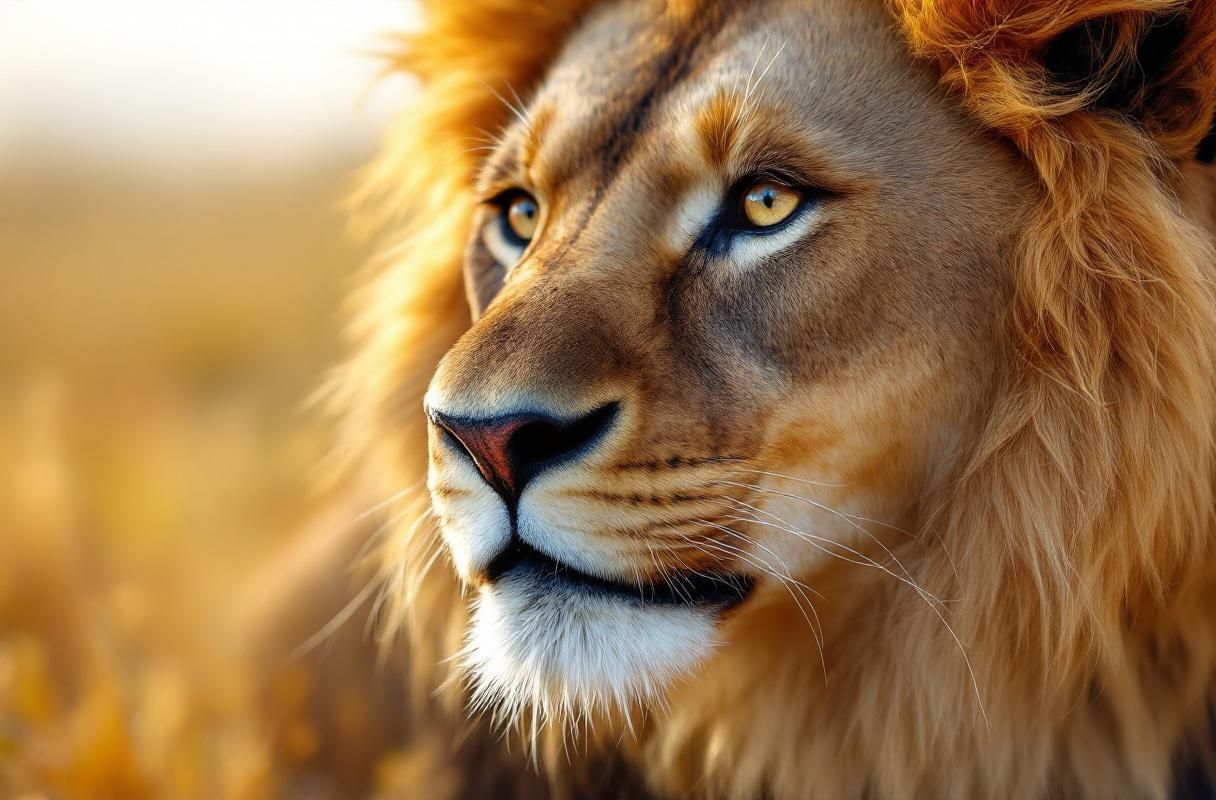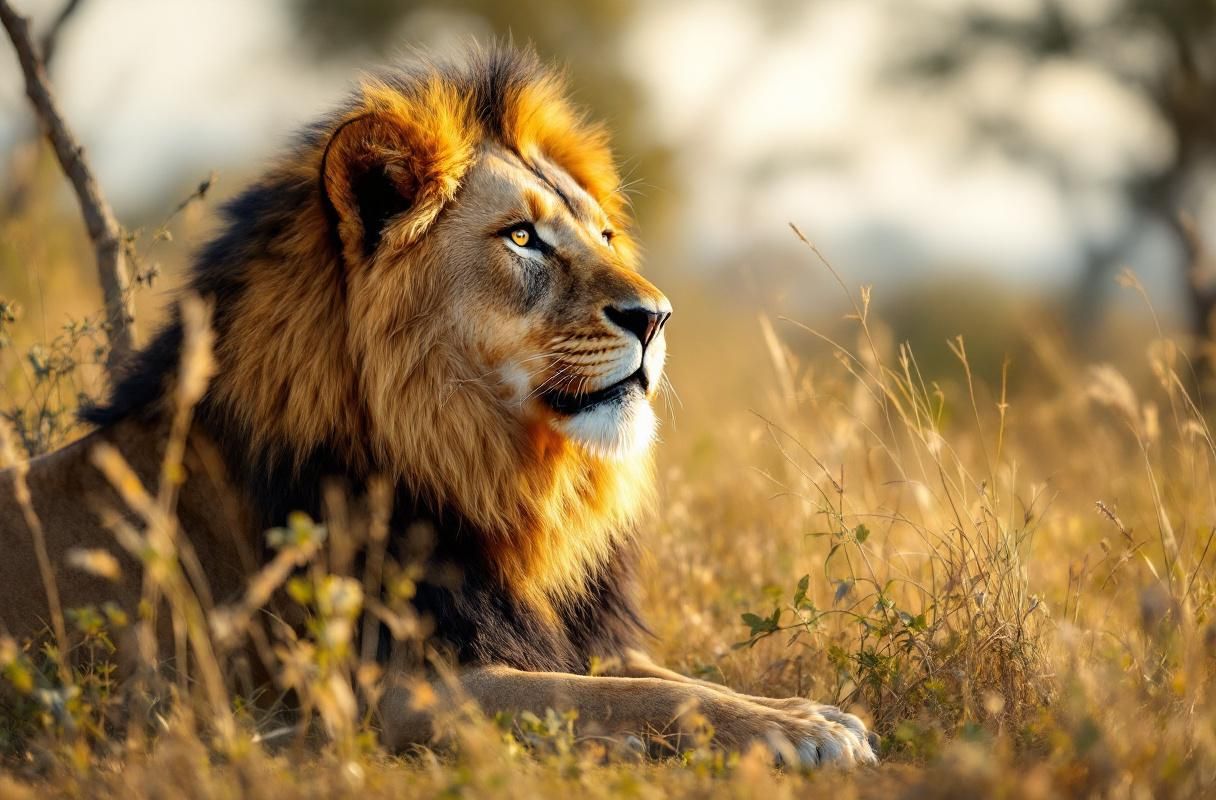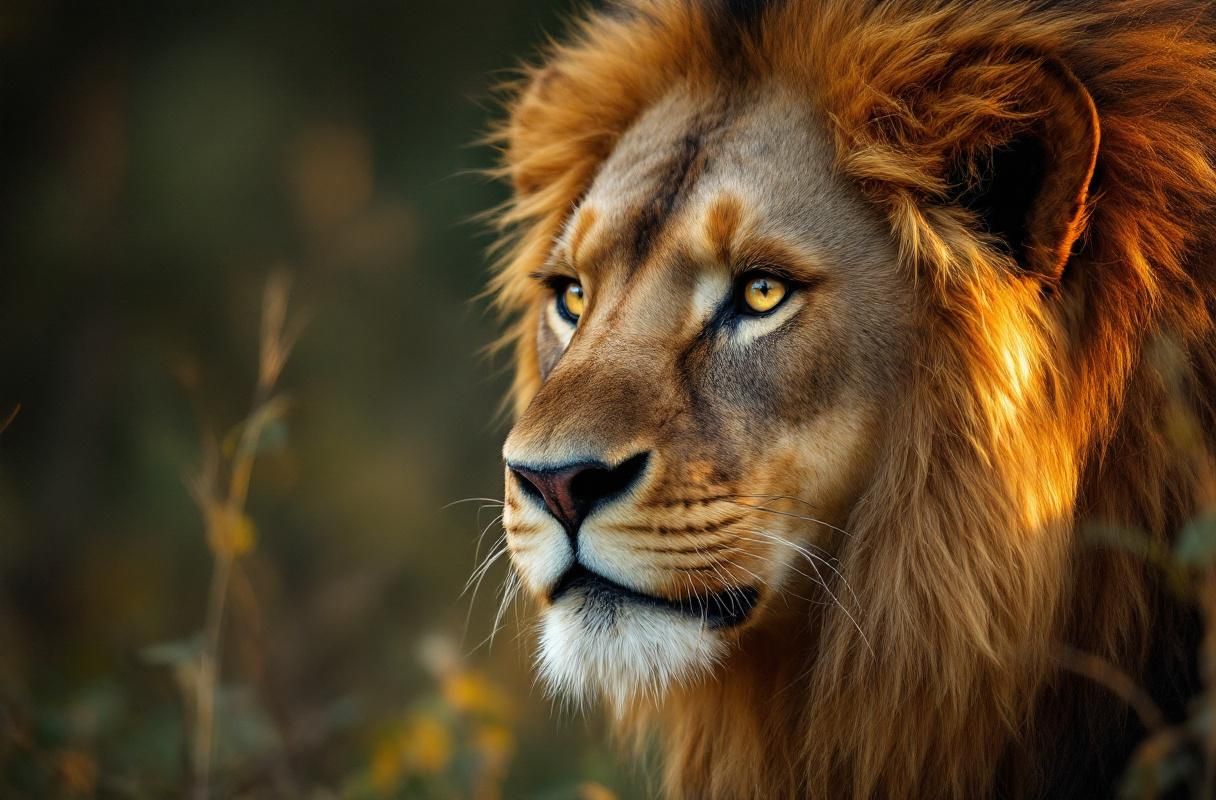
The African savanna is one of the most iconic landscapes on the planet, teeming with diverse wildlife and vibrant ecosystems. At the heart of this rich tapestry lies the African lion, a species that not only captivates the imagination but also plays a crucial role in maintaining the balance of this environment. Understanding the significance of African lions extends beyond mere admiration; it involves recognizing their role as apex predators and their impact on the ecosystems they inhabit. This article dives into how African lions shape the African savanna ecosystem, their social structures, conservation challenges, and the best places to observe these majestic creatures in the wild.
African lions are often regarded as keystone species, meaning their presence has a disproportionate effect on their environment. As apex predators, they help regulate prey populations, which in turn influences the health of the savanna ecosystem. When lion populations are robust, they keep herbivore numbers in check, which prevents overgrazing and promotes vegetation diversity. This balance is vital for the survival of various plant and animal species that rely on a healthy habitat.

Lions primarily hunt large herbivores such as zebras, wildebeests, and antelopes. By preying on these animals, lions ensure that the populations do not exceed the carrying capacity of their environment. For instance, a surge in herbivore populations can lead to significant overgrazing, which can decimate plant life and subsequently affect smaller herbivores and insect populations. This cascading effect highlights the lion's role as a regulator of the ecosystem, showcasing their importance in maintaining biodiversity.
The presence of lions also encourages the development of a more diverse ecosystem. With lions controlling the number of herbivores, the vegetation can thrive, leading to a variety of plant species. This, in turn, supports a broader range of wildlife, from insects to birds and smaller mammals. The interplay between lions and their prey exemplifies the intricate balance of life in the savanna, emphasizing that the decline of lion populations could lead to a ripple effect with dire consequences for the entire ecosystem.
The social structure of African lions is unique among big cats, characterized by their pride system. A pride typically consists of several related females, their offspring, and a coalition of males. This social arrangement provides several advantages, including cooperative hunting and protection against rival prides and other predators.

Within a pride, female lions often work together to hunt and rear their young. This cooperative behavior is crucial for the survival of the cubs, as it allows mothers to take turns caring for their offspring. When hunting, females coordinate their efforts to increase the chances of a successful kill, demonstrating remarkable teamwork and intelligence. This social structure not only enhances their survival but also strengthens the genetic diversity of the pride.
Male lions, on the other hand, typically form coalitions to defend their territory against rival males. These coalitions can consist of brothers or unrelated males who band together for mutual benefit. By working as a group, they can better protect their pride and territory, ensuring access to resources. However, this territorial behavior can lead to conflicts, particularly when new males attempt to take over a pride. Understanding these social dynamics provides insight into lion behavior and their role in the ecosystem.
Despite their significance, African lions face numerous threats that have led to a decline in their populations across the continent. Habitat loss, human-wildlife conflict, and poaching are among the most pressing challenges that threaten their survival.

As human populations expand, the natural habitats of African lions are increasingly encroached upon by agriculture and urban development. This habitat loss not only reduces the available space for lions but also fragments their populations, making it difficult for them to find mates and hunt effectively. Conservation efforts must prioritize habitat protection and restoration to ensure that lions have the space they need to thrive.
As lions venture into human settlements in search of food, conflicts often arise, leading to retaliatory killings by farmers and ranchers. This conflict poses a significant threat to lion populations and can hinder conservation efforts. Educating local communities about the ecological importance of lions and implementing non-lethal deterrents can help mitigate these conflicts and promote coexistence.
Supporting African lion conservation is vital for their survival and the health of the ecosystems they inhabit. There are several actionable steps individuals and organizations can take to contribute to these efforts.
One of the most effective ways to support lion conservation is through education and advocacy. Raising awareness about the challenges facing lions and the importance of their conservation can inspire action at both local and global levels. Engaging in discussions, sharing information on social media, and participating in wildlife conservation campaigns can help generate support for protective measures.
Numerous organizations are dedicated to the conservation of African lions and their habitats. Contributing financially or volunteering with these organizations can make a significant impact. Funds are often used for anti-poaching efforts, habitat restoration, and community education programs. By supporting these initiatives, individuals can play a direct role in protecting lion populations.
Safari tours that prioritize ethical practices can contribute to lion conservation. Choosing to visit wildlife reserves and parks that support conservation efforts helps fund protective measures for lions. Responsible tourism not only provides economic benefits to local communities but also raises awareness about the importance of preserving African wildlife. For more insights on safari animals, check out 50 Safari Animals to See in Africa.
Experiencing African lions in their natural habitat is an unforgettable adventure. There are several renowned safari destinations across Africa where visitors can witness these magnificent creatures.
The Serengeti is perhaps the most famous wildlife destination in the world, known for its vast open plains and incredible biodiversity. The park is home to a large population of lions, making it an ideal location for observing their behavior in the wild. The annual wildebeest migration also attracts lions, providing visitors with the opportunity to see these predators in action.
Kruger National Park is another premier destination for lion enthusiasts. The park offers a diverse range of habitats, from savannas to dense bush, providing ample opportunities to spot lions. Guided safari tours allow visitors to learn about lion behavior and conservation efforts while enjoying the breathtaking scenery of the South African landscape.
The Maasai Mara is famous for its large lion populations and is a key area for lion conservation efforts. The reserve is known for its stunning landscapes and rich wildlife, making it an excellent location for photography and wildlife watching. Visitors can participate in guided tours that focus on lion tracking and behavior, providing a deeper understanding of these majestic animals.
Understanding the biology and behavior of African lions enhances appreciation for their role in the ecosystem. Here are some intriguing facts about these big cats:
These facts highlight the unique characteristics of African lions and underscore the importance of protecting them as an endangered species. For more interesting animal facts, visit Animal Facts.
African lions are not just symbols of strength and courage; they are vital players in the intricate web of life that constitutes the African savanna ecosystem. Their role in regulating prey populations, maintaining biodiversity, and fostering social structures is crucial for the health of their environment. However, the challenges they face, including habitat loss and human-wildlife conflict, necessitate urgent conservation efforts.
By educating ourselves and others, supporting conservation organizations, and participating in responsible tourism, we can contribute to the protection of African lions. Moreover, exploring top safari destinations allows us to connect with these magnificent creatures in their natural habitat while promoting awareness and appreciation for their conservation. Together, we can ensure that future generations will also have the opportunity to witness the majesty of African lions in the wild.
If you are interested in learning more about lion conservation or planning a safari to observe these incredible animals, consider reaching out to wildlife conservation organizations or tour operators specializing in ethical wildlife experiences. Your involvement could make a significant difference in the fight to protect African lions and their ecosystems.
Get free resources, early access to new features and updates.
No spam. Just fun educational emails!